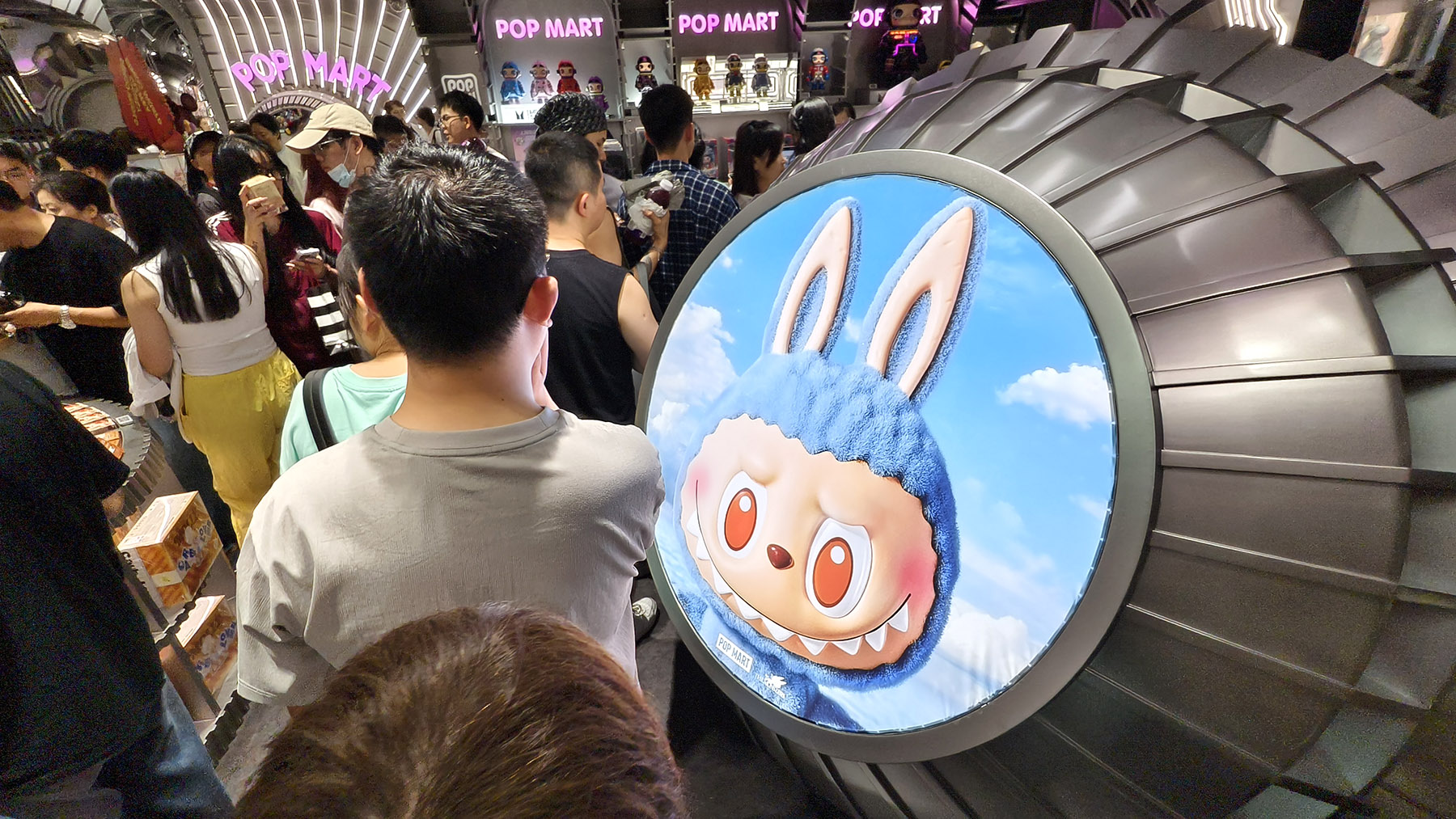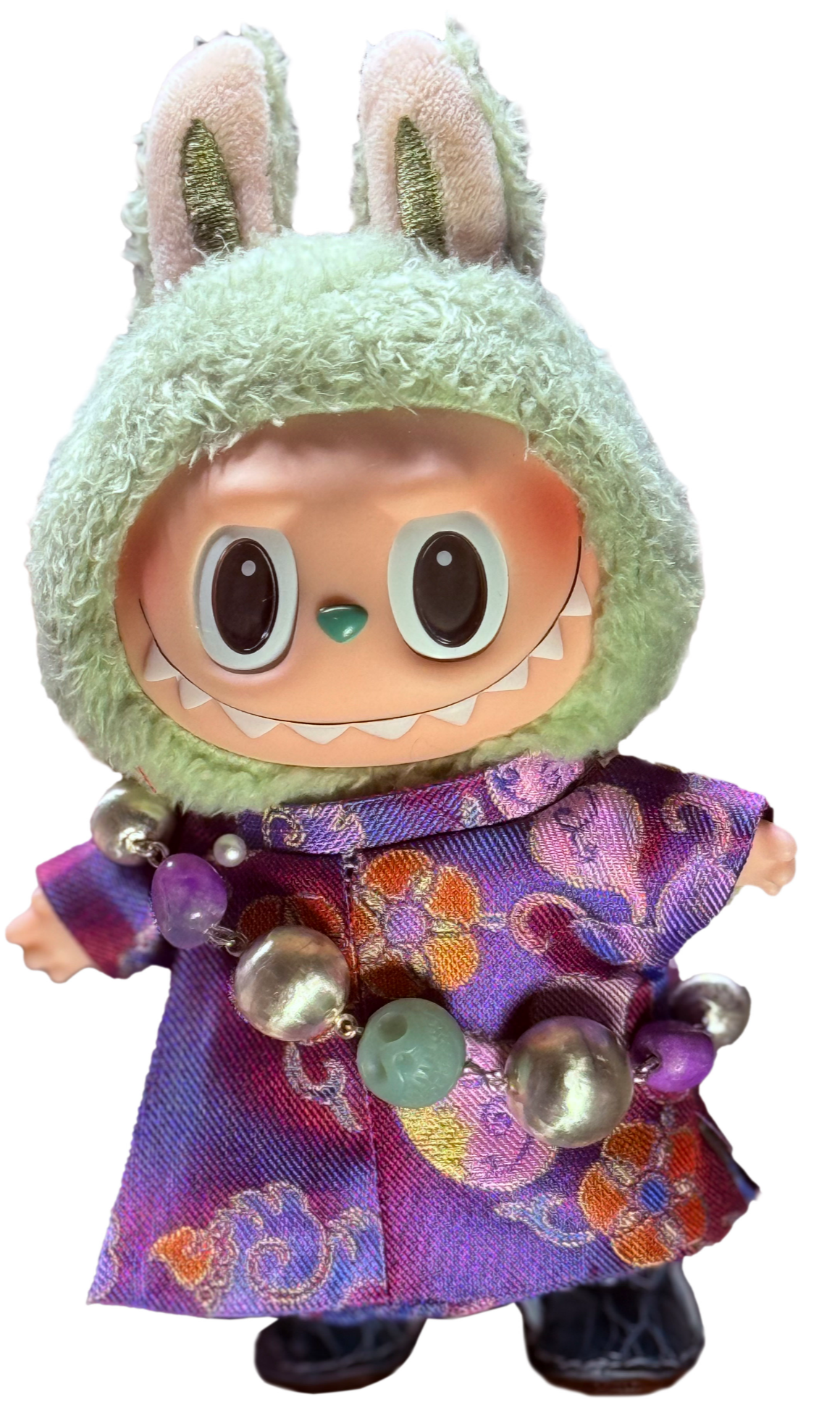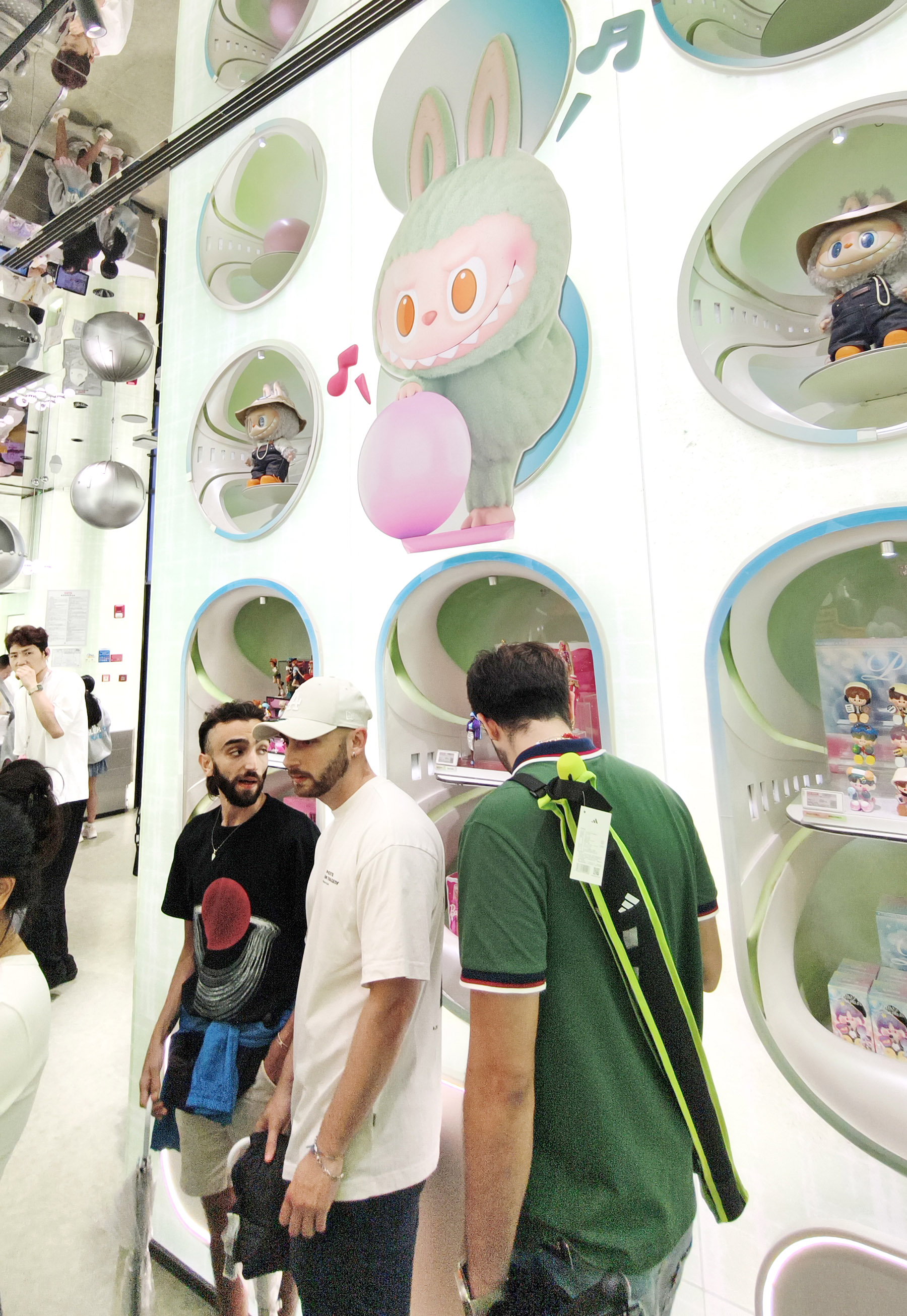China’s Labubu becomes a cultural phenomenon as elf-like plush dolls become part of fans’ daily lives

Tang Xianyue’s curated collection boasts dozens of Labubu figures and plush dolls in her bedroom. Her daily ritual begins at the wardrobe: choosing a Labubu, a nine-toothed elf with a creepy-cute grin, as a bag charm in accordance with her own outfit.
Like others, she also finds it fun to re-dress the plush dolls, swapping hats, layering necklaces, and mixing tops and bottoms.
“It’s like stepping back into childhood make-believe worlds of playing doll dress-up. I feel happy when I look at my Labubu doll dangling from my bag,” said Tang, 30, a State-owned enterprise worker in Dong-ying, Shandong province.
“Labubu defies the standardized and cookie-cutter cuteness. Instead, it mirrors the imperfect yet authentic vitality within all of us. Unlike characters tied to specific cartoons, Labubu allows you to freely project your own emotions onto it however you wish.”
When global stars like Rihanna and David Beckham, along with influencers from home and abroad, sport Labubu dolls on their bags, the whimsically mischievous elf turns into a symbol of a trendy lifestyle, drawing more people to take notice.
Labubu belongs to a group of magical characters called The Monsters, created by Hong Kong-born artist Kasing Lung in 2015, inspired by Nordic fairy tales.
In 2018, Chinese toy company Pop Mart signed a deal to create The Monsters series of plushies, and launched the first-generation blind boxes of mini figures.
Pop Mart’s official data showed that in 2024, The Monsters notched 3.04 billion yuan ($423.3 million) in revenue, a year-on-year increase of 726.6 percent, making it the company’s top-grossing intellectual property, or IP.
Tang fell in love with Labubu in 2020, when the character was dismissed by her friends as “weird-looking”. Little did anyone predict that it would explode into a global sensation commanding high prices.
“Each blind box delivers instant joy and stress relief. It’s like a tiny emotional rollercoaster, with a thrill ride of nervous anticipation and surprise. I have collections of different characters on shelves, not only Labubu, and they help melt away the day’s fatigue after work,” she said.

She often snaps up Labubu products on Pop Mart’s app or WeChat mini-program the moment restock alerts hit, and the products sell out in seconds because of Labubu’s huge fame. Now it is a race against scalpers hoarding stock and inflating secondhand market prices.
Tang lost in this buying spree.
“I did not buy any since June (because all products were sold out). Popular plush toys sell for more than 10 times their original retail price in the secondhand market, especially some rare editions,” she said.
“The inflated prices are exorbitant. The true value of art toys resides in creative design and cultural resonance, not market manipulation and speculation.”
Wang Manlu, 29, could not agree more.
“I refuse to buy at such high prices, and I’m confident that they will drop,” said Wang, who works at a foreign trade company, in Jinan, Shandong province.
“I cherish Labubu simply for what she is — regardless of trends. Yet, seeing her loved by more people now brings me joy. It turns out my taste aligns with celebrities’ after all!”
She said Labubu’s cheeky grin and serrated teeth resemble her when she is grappling with unspoken worries.
“Labubu isn’t instantly likable at first glance, but grows on you over time with its quirky charm. It’s like looking in a mirror as I come across the same way: seeming intimidating at first, yet genuinely easygoing once people know me,” she said.
Her way of de-stressing after work is to unwind at home with her Labubu dolls — having them beside her when she is watching TV or playing mobile games.
“They’re like my sweet tiny companions. I’ll gently brush the fur and feel that same soothing rhythm under my fingertips, just like petting a cat,” Wang said.
Ouyang Limei, 53, started to buy sealed cases of Labubu blind boxes in 2019 to guarantee full sets, because she was attracted by the toys’ creepy-cute smirk.

She arranged her plush dolls among flowers to take photos of the cozy scenes. She has hand-sewn several miniature sets of Chinese-style clothes from brocade and leather shoes for her Labubu dolls.
“At this stage of life, I embrace diverse hobbies and savor every moment. I love exploring all kinds of new experiences and learning from my 18-year-old daughter, such as picking up the latest buzzwords from her. Though unlike me, she’s not as passionate about art toy collecting,” said Ouyang, who works in a foreign company in Shanghai.
“Just like Mickey Mouse, I believe that Labubu’s quirky appeal transcends age. Don’t tell yourself you’re ‘too old’ or ‘too young’ to try something. There’s no need for such restrictions.”
According to a survey conducted by the Chinese Academy of Social Sciences (CASS) in early 2025, among 10,123 people aged 18 to 70 nationwide, 25.42 percent and 28.51 percent expressed a strong desire to satisfy their need for emotional comfort, and self-expression through cultural activities, respectively. This proportion peaked among those under 30, reaching 30.65 and 30.38 percent, respectively.
“Emotional value is a major factor influencing youth consumption. Labubu functions as symbols, conveying specific emotional values and lifestyles. Consumers use them to display their taste and individuality, gaining a sense of belonging and recognition within communities,” said Gao Wenjun, associate research fellow at the Institute of Sociology, CASS.
“Consumers like Labubu’s adorable yet mischievous image and share their photos of their collections on social platforms. They may also relieve stress, achieve a sense of accomplishment or self-expression by engaging in secondary creation activities, such as re-dressing their Labubu dolls.”
Li Chuang, assistant researcher at the Institute of Sociology, CASS, said that DIY (“Do it Yourself”) represents a core characteristic of youth culture. Young people express their aesthetics through the products they consume and the cultural activities they engage in. They may embed their emotions into these cultural items, projecting aspects of their identity into the DIY process itself.
Gao said that Labubu’s overseas resonance stems primarily from enhanced user-centered creative design and marketing capabilities of Chinese brands.
Pop Mart seized a critical moment, propelling Labubu to global popularity through emerging demand in the art toy market, the amplifying effect of celebrity endorsement, and diversified promotions such as music and secondary creations across new media platforms, she said.
“The Labubu phenomenon demonstrates that Chinese brands are able to adopt a user-centered approach, delivering emotional value through creative design to captivate global consumers. It also transcends conventional thinking by proving that cultural exports need not be necessarily tied to explicit Chinese symbols,” Gao said.
Tu Jiayi contributed to this story.
Contact the writer at xulin@chinadaily.com.cn


